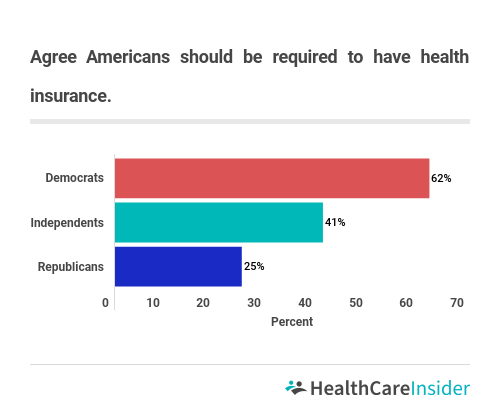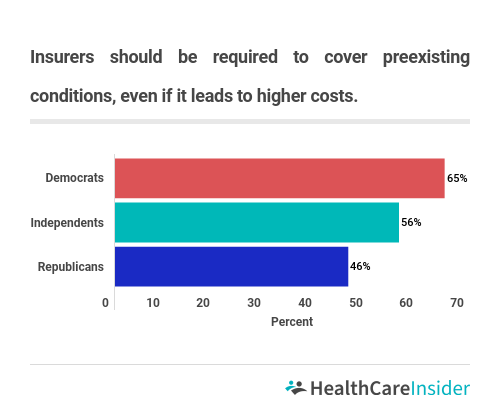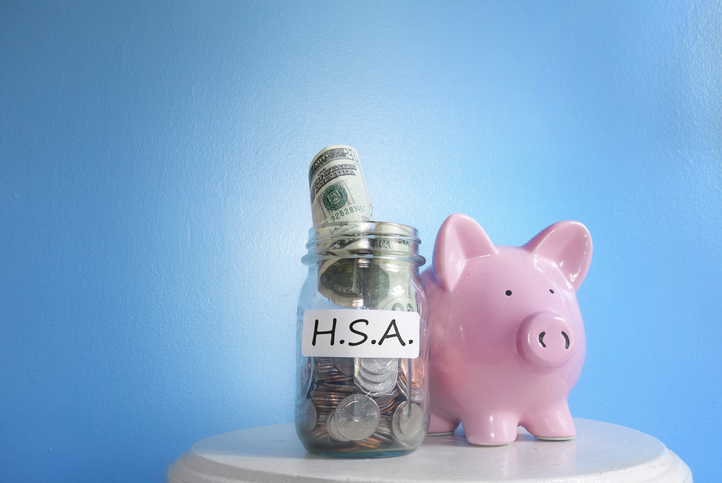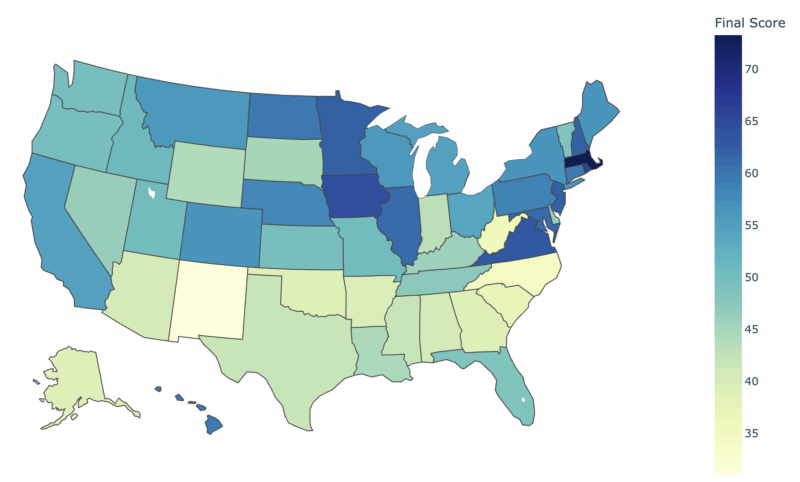Written by Michael LaPick
Healthcare Writer
We want to help you make educated healthcare decisions. While this post may have links to lead generation forms, this won’t influence our writing. We adhere to strict editorial standards to provide the most accurate and unbiased information.
With the Affordable Care Act (ACA) under threat in the Supreme Court and COVID-19 raging nationwide, a new survey shows Americans starkly divided on how to pay for the nation’s healthcare needs.
Asked if Americans should be required to have health insurance as they must with auto insurance, 43% of respondents nationwide answered yes, 37% no, and 20% said they don’t know.
But Democrats and Republicans broke sharply on the question.
62% of self-identified Democrats said Americans should be required to have health insurance whether they pay for it themselves or get help.
That compares to just 25% of Republicans.
Meanwhile, 41% of independents said Americans should be required to have health insurance, closely tracking the national figure.
HealthCareInsider.com, a HealthCare.com company, commissioned the survey, which ran from November 24th to 30th, to gauge support for the Affordable Care Act (ACA or “Obamacare”) as the Supreme Court hears a new case to strike down the law.
The Supreme Court will decide the case next year.

Asked their views on the case, 62% of Democrats somewhat or strongly opposed striking down the ACA.
By contrast, just 15% of Republicans felt the same way, along with 41% of independents.
Nationwide, 41% of Americans somewhat or strongly opposed striking down the ACA.
Support for Covering Preexisting Conditions
The question of financing treatments for Americans with preexisting medical conditions remains central to the health insurance debate. Insurers must cover preexisting conditions under the ACA.
We asked respondents if Congress or the current administration should require insurance companies to cover preexisting conditions if the ACA is eliminated.
Support for this requirement was relatively strong across the political spectrum.
Nationwide, 54% of respondents agreed insurers should be required to cover preexisting conditions, even if it leads to higher costs.
By party identification, 65% of Democrats said insurers should be required to cover preexisting conditions regardless of costs.
46% of Republicans and 56% of independents agreed.

Some respondents believed that preexisting conditions should only be covered if doing so does not lead to higher costs. 19% of Democrats felt this way, compared to 27% of Republicans and 23% of independents.
Just 3% of Democrats said insurers should not be required to cover preexisting conditions under any conditions, compared to 9% of Republicans and 7% of independents.
13% of Democrats, 18% of Republicans and 13% of independents said they don’t know.
Health Insurance in a Post-ACA Future
To learn how Americans think they should obtain health insurance if the ACA is struck down, we asked respondents to express their support for four options.
Democrats were most in favor of building a Medicare for All option, while Republicans opted for the federal government not doing anything at all.
- Create a new option similar to the ACA: 34% of Democrats, 21% of Republicans, 23% of independents.
- Build a Medicare for All option: 43% of Democrats, 10% of Republicans, 33% of independents.
- Extend short-term health insurance: 7% of Democrats, 6% of Republicans, 9% of independents.
- The federal government shouldn’t do anything: 14% of Democrats, 59% of Republicans, 32% of independents.
Currently under the ACA, ten essential health benefits are required to be covered by insurance providers. We asked respondents how concerned they would be if the benefits were no longer required.
75% of Democrats said they would be very or somewhat concerned, compared to 36% of Republicans and 60% of independents.
We also asked pollees their opinion of America’s current system, under which most Americans get their health insurance through their employer.
A 55% majority of Republicans believe this is an effective way for a country to provide its citizens with coverage. That compares to only 26% of Democrats and 36% of independents.
Currently under the ACA, ten essential health benefits are required to be covered by insurance providers. We asked respondents how concerned they would be if the benefits were no longer required.
75% of Democrats said they would be very or somewhat concerned, compared to 36% of Republicans and 60% of independents.
We also asked pollees their opinion of America’s current system, under which most Americans get their health insurance through their employer.
A 55% majority of Republicans believe this is an effective way for a country to provide its citizens with coverage.
That compares to only 26% of Democrats and 36% of independents.
The Politicization of COVID-19
We asked respondents if the government should provide or help pay for health insurance for people who lose employer coverage due to the Coronavirus (COVID-19).
57% of Americans nationwide agreed.
By party, 72% of Democrats agreed the U.S. government should provide or help pay for health insurance for people who lose coverage due to COVID-19.
61% of independents and 42% of Republicans agreed.
Respondents diverged significantly on whether they plan to get a Coronavirus (COVID-19) vaccine once it is available.
34% of Republicans said they won’t get vaccinated, compared to 27% of independents and 10% of Democrats.

Vaccine hesitancy was also notable across generations.
Just 18% of Gen X (born 1965-1980), Millennials (born 1981 to 1995) , and Gen Z (born after 1996) respondents planned to get the vaccine as soon as it’s available.
A slightly higher 25% of Baby Boomer (born 1946-1964) respondents said they’d get vaccinated as soon as possible.
The largest number of respondents nationwide, 25%, preferred to wait a certain period of time to see if the vaccine is safe and effective.
Religion a Key Variable on COVID-19 Vaccine Hesitancy
Religious identification was a key variable in respondents’ willingness to get a COVID-19 vaccine.
28% of people for whom religion is very important said they would not get vaccinated.
That compares to 18% of respondents for whom religion is not at all important.
34% of Americans who identified as born again said they do not plan to get the vaccine.
Only 17% of respondents who weren’t born again said they won’t get vaccinated.
Methodology
HealthCareInsider.com commissioned YouGov America to conduct the survey. All figures, unless otherwise stated, are from YouGov America. The total sample size was 1,200 adults. Fieldwork was undertaken November 24-30, 2020. The survey was carried out online. The figures have been weighted and are representative of all U.S. adults (aged 18+). The margin of error is 2.6% plus or minus.
Thank you for your feedback!







